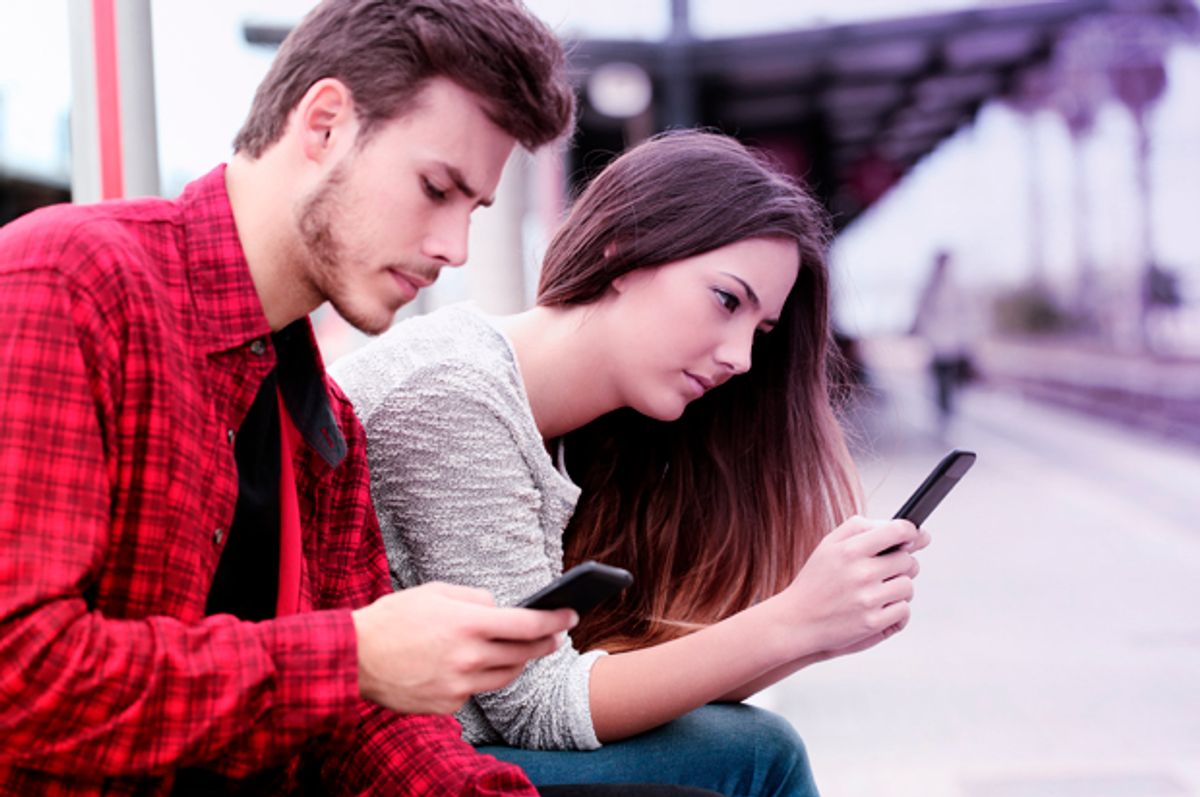Common sense would suggest the spread of technologies designed to pinpoint potential sex partners would make getting laid a whole lot easier. According to some estimates, the location-based dating app Tinder has around 50 million users, worldwide. A report conducted by the Pew Research Center finds that the online dating apps have nearly tripled in popularity among young people, specifically, in the past few years. But access to the dating world doesn’t necessarily translate into experience with it. According to the same report, one-third of online daters have never made it out onto an actual date. And maybe that can help explain one brow-raising headline making its way around the Internet these days. Virginity in America is on the rise.
Twenty-five years ago, almost 60 percent of female teens had done “the deed.” By 2013, that number had dropped by 14 percent. The numbers are even more drastic for guys. In the past 25 years, virginity among male teens has jumped up by 22 percent. And if you think things get easier as you get older, think again.
Information collected by online dating service Match holds that one in three 20-somethings still haven’t ditched their virginity. Even those who have don’t seem to be getting much action. As of 2015, 49 percent of people in their 20s hadn’t had sex in a year. A separate study uncovered even more related news. Apparently, if you’re an American in your 20s, your mom has probably had sex with more people than you ever will. Out of the 33,000 people surveyed for the study, millennials reported an average of eight sex partners. Gen X’ers were more likely to have bagged 10 or 11.
We have numbers, but experts are still scrambling to find the reason behind them. Tinder claims to have helped create around 8 billion “connections” among users. But the depth of those connections needs to be called into question. As mentioned earlier, connecting with someone on the app doesn’t mean connecting with them in real life. When it comes to online dating, the game might be more rewarding than the actual action it’s designed to inspire. We all have the ability to “swipe right,” but taking things a step further requires a different set of skills. As Tomas Chamorro-Premuzic, professor of business psychology at University College London, says, “Mobile dating is much more than a means to an end; it is an end in itself.”
In a now-famous study conducted at Stanford University, researchers found that consumers were more likely to make a purchase when they were presented with a limited selection of merchandise. Having a large pool to chose from may seem appealing at first, but it could also make acting on a decision all the more difficult. In the online dating landscape, too many choices might actually mean spending more time at home, alone.
And all those choices mean more competition. If you’re going to stand out against the millions of other profiles out there, you’ve got to put your best face forward. But even the most edited version of ourselves might not be enough to get ahead of the rest. While some might win at upping the general standard of what is considered attractive, others will undoubtedly lose out.
Millennials expert and researcher Jean Twenge explains, “For a lot of folks who are of average appearance, marriage and stable relationships was where they were having sex. . . [and dating apps may be] leaving some people with fewer choices and they might be more reluctant to search for partners at all.” Rejection in the technosexual era could be enough to turn us off of the online dating game all together. After all, it hurts.
But attributing a lack of sex to our assumedly ugly faces would be shortsighted. There are, of course, other factors at play.
Tinder users are expected to base their dating decisions off of, at most, six photos and 500 characters of text (and yes, that includes spacing and punctuation). With that, we don’t get the chance to showcase the most basic elements of attraction, like scent, taste and touch. Often, the most shining aspects of ourselves get lost online.
Of course, online dating alone is not responsible for the rise of our virgin America. Researchers have found that millennials are less likely to partake in “risky behavior” than older generations. Sex often falls under that umbrella. And hey, not having to worry about getting laid means you’ve got more time for things like studying, or making money. And if that doesn’t interest you, the Internet offers plenty of other ways to pass the time.
But those who are trying to get laid are increasingly turning to online dating apps to do so. And while it’s surely working out for some folks, others are becoming increasingly frustrated with the algorithm. If you’re one of America’s unwilling virgins, you might want to try logging offline and into real life. After all, the more time you spend worrying about “losing it,” the further inside your head you go. And that’s not a sexy look on anyone.

Shares